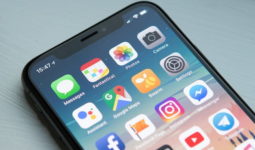‘Pokémon: Let’s Go’: Beginner’s Guide to XP, Cash, Coach Trainers, and more
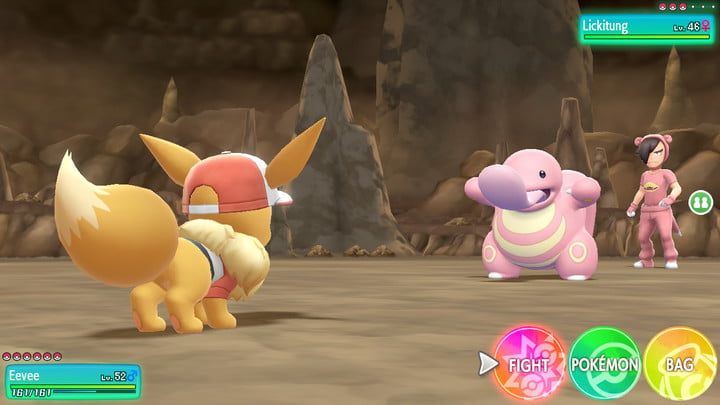
After you’re done deciding which version of Pokémon: Let’s Go you want — choosing between Eevee and Pikachu is hard — it’s time to return to Kanto, the region from the first trio of Pokémon games. It will feel familiar to anyone who has played Pokémon Yellow, and the catching sequence won’t be jarring for fans of Pokémon Go.
But as a melding of mainline and mobile, Let’s Go forms an identity all its own. From learning the catch sequence to leveling up to making your way around Kanto, there’s a lot to pay attention in this adorable game. We’ve come up with some tips and tricks to help you on your way to becoming Pokémon League Champion.
How to catch Pokémon in Let’s Go
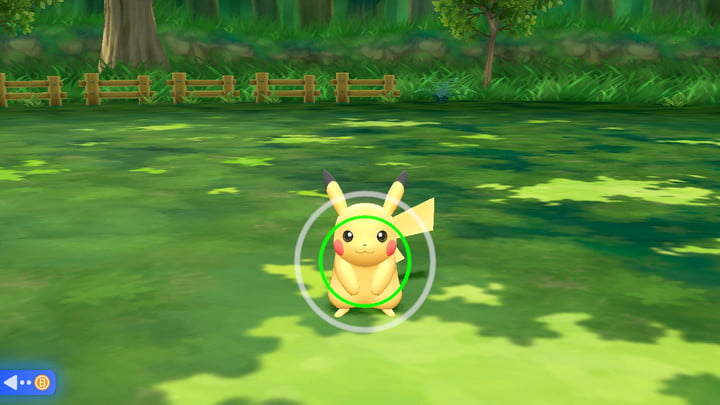
Let’s Go removes both random battles and fights with wild Pokémon. In place of it is a catching minigame in which you toss Pokéballs at a wild Pokémon. A ring appears around each Pokémon to note where to throw the ball. A second ring progressively shrinks on loop. Your goal is to land your Pokéball in the ring when it’s just big enough for a Pokéball to fit inside it. The better the timing, the higher the likelihood is that you’ll secure the wild Pokémon. You’ll know you had a good throw based on text on the screen that reads: Nice, Great, or Excellent.
The other thing you have to watch out for is the shrinking ring’s color, which can either be green, yellow, orange, or red. Green means the Pokémon should be easy to catch, while red is on the other side of the scale. The color can change by feeding berries to the Pokémon to calm it down or by switching to a different Pokéball.
There’s not much to the actual catching sequence, otherwise. Just make sure you work quickly and keep lobbing those Pokéballs before it flees. If you’re having trouble with the motion controls in docked mode, handheld mode largely removes motion controls. However, it’s easier to make accurate throws in handheld mode, in our experience.
How to earn more XP
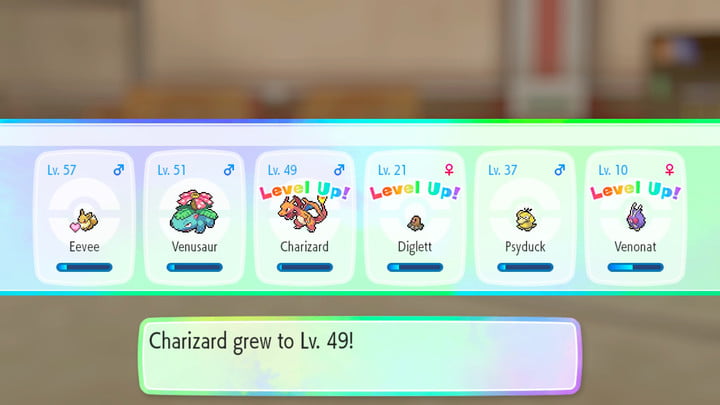
Since random battles are gone, catching is the main source of XP. In fact, you can get far more XP catching than battling if you’re persistent. Since catching Pokémon usually takes no more than a minute, we recommend catching any and all Pokémon you see. You get more XP for quality catches (excellent rating), but you can stack the deck with a couple of tricks.
Catch the same species repeatedly
Catch combos can greatly increase XP. As you catch the same species over and over again, a catch multiplier builds that increases the XP you earn with each successive catch. Catching many of the same species also increases your chances of finding a Pokémon of that species with really good stats. So it pays off to be dedicated to hunting.
Favor tiny and huge Pokémon
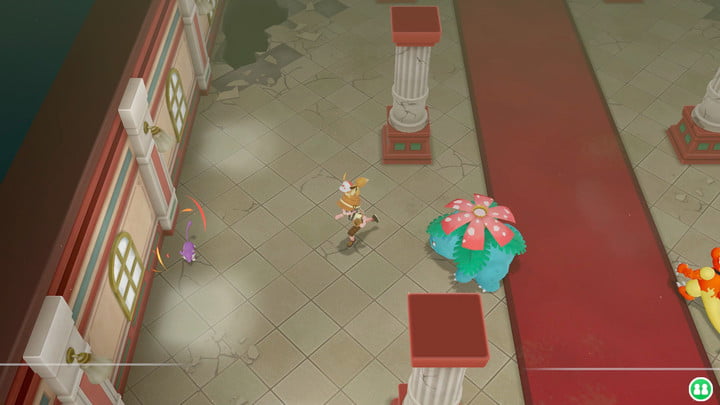
Some Pokémon have a glimmering aura around them. Prioritize these over others, as this marker indicates that the Pokémon is either tiny or huge. Tiny and huge Pokémon dole out more XP by default.
Switch out the Pokémon in your party
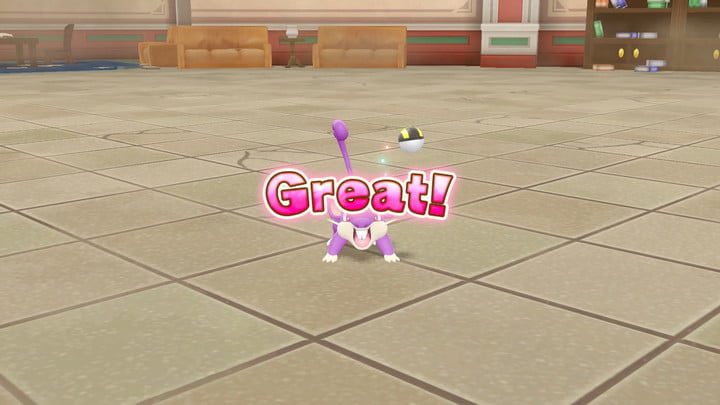
Since you’re not battling wild Pokémon, you don’t need to have your best Pokémon in your party. Thanks to a new Pokémon storage system that lets you swap party members straight from the menu, you can game the system a bit by leveling up Pokémon that wouldn’t normally thrive in battle while catching. For instance, if you want to level your Nidoran into a Nidorino, it’s faster to throw him in your party while catching wild Pokémon than wasting a spot for him in battle where he’ll earn much less XP through experience share.
Send Pokémon to Professor Oak
Just because we recommend catching tons of Pokémon, it doesn’t mean you should keep all of them. In the Pokémon box, you can send unwanted Pokémon to Professor Oak. In return, he’ll give you candies that you can use to level the stats of your other Pokémon.
Travel with an extra Pokémon by your side
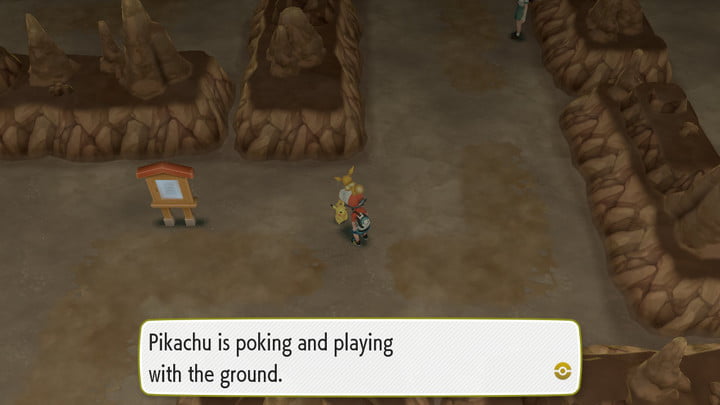
You’ll either have Pikachu or Eevee hanging on you at all times, but you can also release one additional Pokémon from its Pokéball. We started with Eevee but still had a Pikachu we caught early in travel on our heels. Your companion Pokémon’s bonding level increases from letting it out of its cramped Pokéball, and you can increase this further by stopping to interact with it. You’ll be rewarded in battles at times when the Pokémon cures itself of status conditions, refuses to faint or avoids attacks.
The other benefit of having a Pokémon follow you is that it will find hidden berries. When it stops in its tracks and has a text bubble over its head, you will often receive a few berries.
Use Pokémon to give you rides
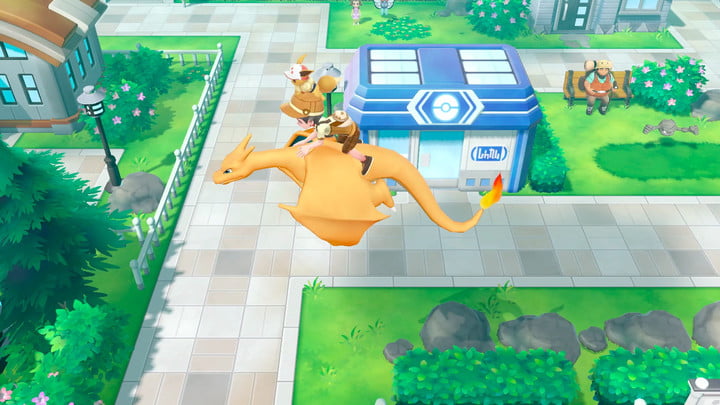
The bike shop remains in Kanto, but you can’t ride a bike. Never fear, though, a much cooler travel option is available. Rideable Pokémon. If you release a Pokémon from its ball that can be ridden, you will automatically hop on its back instead of seeing it trail behind you. There are conventional rideable Pokémon like Rapidash and more humorous options like Onix. The full list of rideable Pokémon:
Talk to everyone you see
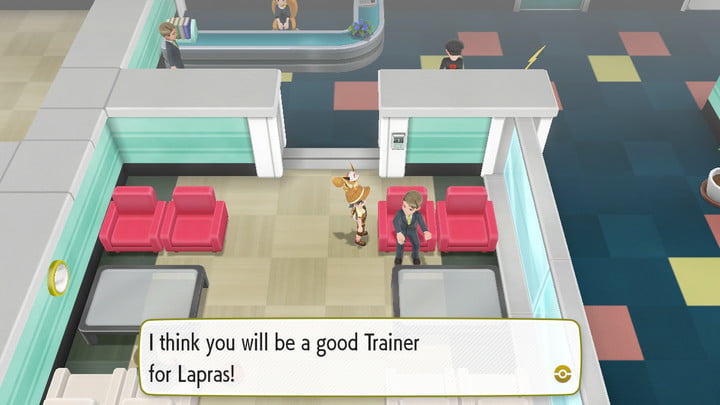
Many of the NPCs you come across between towns will want to battle you, but once you get to towns, they are typically much less competitive. You’ll want to talk to everyone you see, everywhere you go. NPCs sometimes give you Pokémon, offer to trade, or gift items. You can even get the original three starter Pokémon — Squirtle, Charmander, and Bulbasaur — by talking to NPCs.
After catching 30 Pokémon, you can talk to the person standing next to Bulbasaur in Cerulean City to receive the grass type Pokémon as a gift. On route 24 just across the bridge you can get Charmander if you’ve caught 50 species. Just after entering Vermillion City, Officer Jenny will offer you Squirtle if you’ve caught 60 Pokémon.
Beyond the starters, you can also get Alolan versions of certain Pokémon by speaking with NPCs in Pokémon Centers who want to trade. You cannot find these variants in the wild, so being personable pays off!
How to earn cash
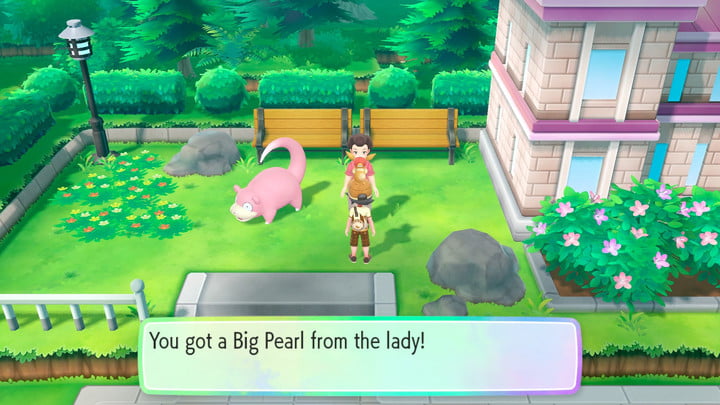
Your primary source of income comes from battling trainers. You can make enough throughout the game to not have to worry much about running out of money to buy Pokéballs and health items. But if you’re catching everything you see, you might start running low on funds. Bridging off of our tip about talking to everyone you see, don’t just talk to them once. Specifically, if you come across someone who gives you a valuable trinket like a Big Pearl or Nugget, remember that location because you can go back again tomorrow to get another one.
Compare strengths and weaknesses

Let’s Go is designed as a more casual experience than mainline entries in the series. That means it’s easy, even the late gym trainers and Elite Four. But you can still lose battles if you’re careless with strengths and weaknesses. In Let’s Go, “super effective” moves are really, really effective. You need to pay attention to the type of Pokémon you’re battling to not only knock them out quickly but avoid getting knocked out yourself. So yes, put a water type Pokémon against a fire, but don’t choose a water type when you are against grass Pokémon. Make sure you know which types gain bonuses against others.
Look out for Coach trainers
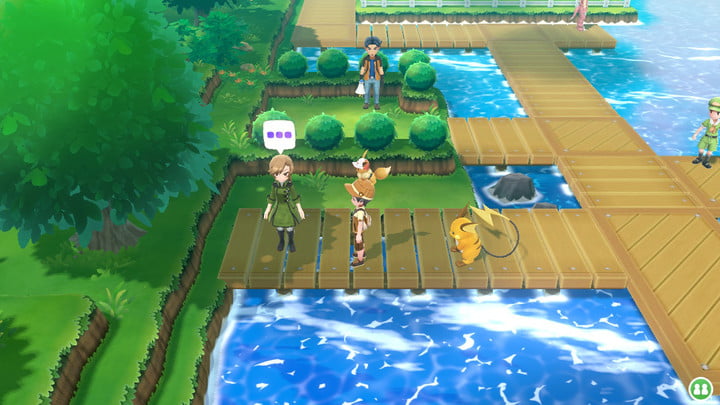
A new type of trainer, Coach trainers, won’t automatically battle you when they spot you. But you should talk to them and initiate battles. You can spot Coach trainers by the text bubble filled with an ellipsis above their head. These trainers are typically more challenging than the regular ones in the same area. Beating them, however, often rewards you with TMs (new moves to teach Pokémon), special candies, and more cash.
How to transfer Pokémon from ‘Go’ to ‘Let’s Go’


You can transfer first generation Pokémon from Pokémon Go to Let’s Go. To do so, open the app on your phone and click “settings,” then “Nintendo Switch,” and finally “Connect to Nintendo Switch.” In Let’s Go, open the menu and press Y. Then choose “Pokémon Go Settings” and press Yes. This process syncs Let’s Go with Go.
Inside the Go app, choose a Pokémon to send over. From there, you have to go to the Go Park building in the northern section of Fuschia City in Let’s Go. Talk to the person at the front desk to bring the Pokémon to the park. After the transfer is complete, you’ll have to go catch the Pokémon in the park to add it to your box.


